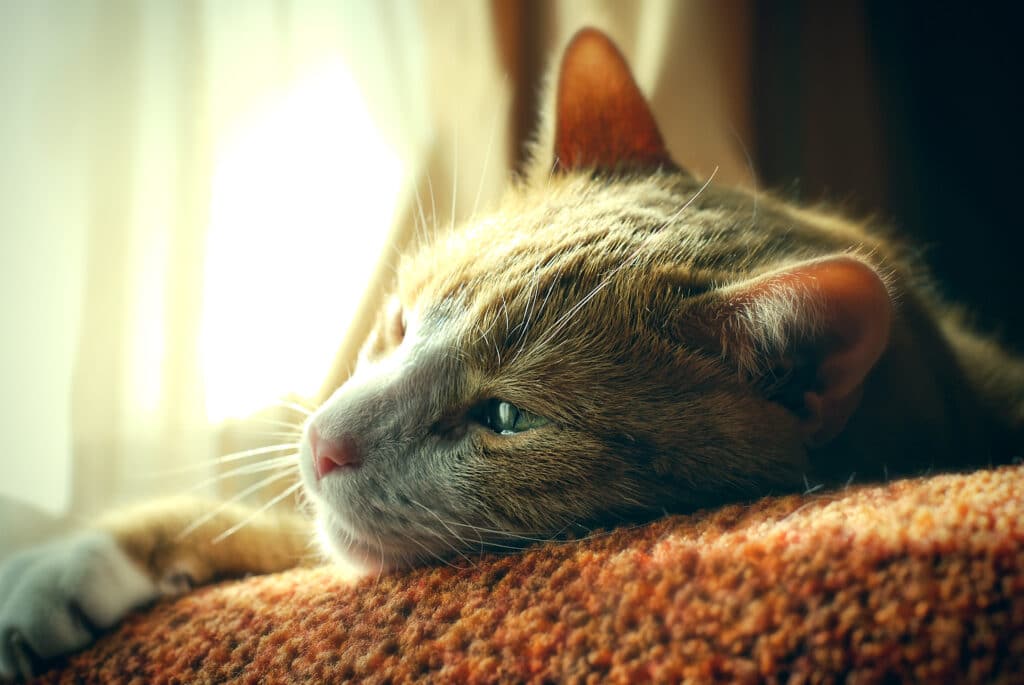
Are you or someone you know experiencing an impending death of a pet cat? Are you not sure how to support your cat as they pass on or how to deal with the grief yourself? If you or someone you know is currently experiencing this, this article can help give you some ideas of how to best approach the situation.
Cats do not want to be alone when dying. They need both physical and emotional support from their owners that they cannot provide for themselves as they pass on. The owner of the cat can provide this support in a number of ways by being around them as they are dying.
Read on to learn how you can best be there for your cat as they pass through their final moments.
Take Them to the Vet
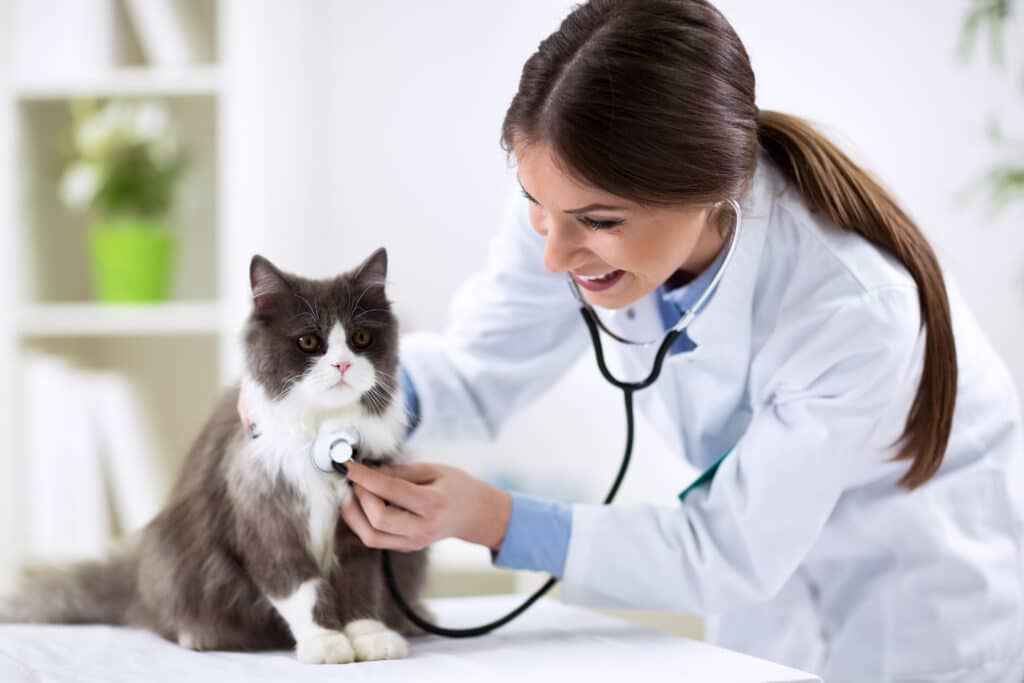
If your cat is presenting health issues, it is important to get them to the vet as soon as possible, because it may be that there is a serious, life-threatening issue that you as the owner are unaware of, which prevents you from being able to care for your cat in a proper way, whether the cat is dying or not. If it is extremely obvious that your cat is terminally ill, taking a trip to the vet will not only be able to help you know what your cat is experiencing, but the doctor can also give you instruction and guidance on how to care for your cat during this time.
The doctor also will be helpful in providing information on the medical reasoning for why the cat’s health is not improving and will most likely worsen. They can also give their professional opinion on whether or not to euthanize the cat, depending on if there is a debate about whether to go that route or to avoid it. While the veterinarian is not trained to give professional advice surrounding your grieving and loss, they understand the difficulty of losing a pet and may be able to give you some advice on how to cope with the grieving process as well.
It is important to note that if your cat is presenting symptoms that are questionable as to whether or not they are life-threatening, it is better to be safe than sorry in regards to taking a trip to the vet. Even if your cat is in perfect health, it can bring you peace of mind that your cat is okay and there is no reason to worry.
Make Sure They Are Still Being Sufficiently Fed
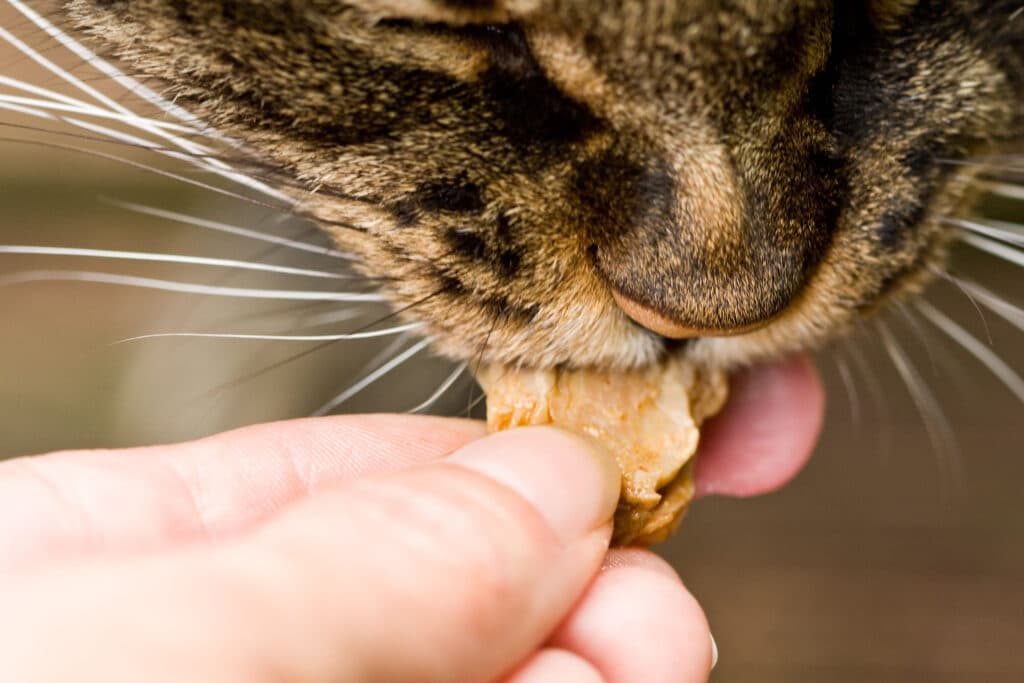
One of the first initial signs of your cat’s health declining is their loss of interest in food and eating. While it may be saddening to watch, a major way that you can help your cat feel comfortable while they are approaching the end of their life is to force-feed them. This will help them still get the nutrition they need to not increase the pain or discomfort they are more than likely already experiencing.
Some may have a difficult time accepting this idea, but it is important to understand that while your cat may reject the food at first, making sure they are sufficiently fed will help them to feel more comfortable. You can do this in one of two ways. You can force-feed using your hands or you can use a syringe. Some cats react better to force-feeding when it is done with your hand because it is something that is more familiar to them, rather than a syringe being placed in their mouths. Regardless of how you choose to do it, it is up to you and how your cat reacts to each method.
As far as what to feed your cat, you should stick to foods that are bland and don’t include a ton of flavoring or seasonings. Baby food is a good option, or if you would prefer something different, you can also do boiled chicken that is not seasoned. If you don’t have access to either of these options, you could also blend a regular meal in a blender or food processor so it is easier for them to both eat and digest.
Continue On with Regular Hygiene
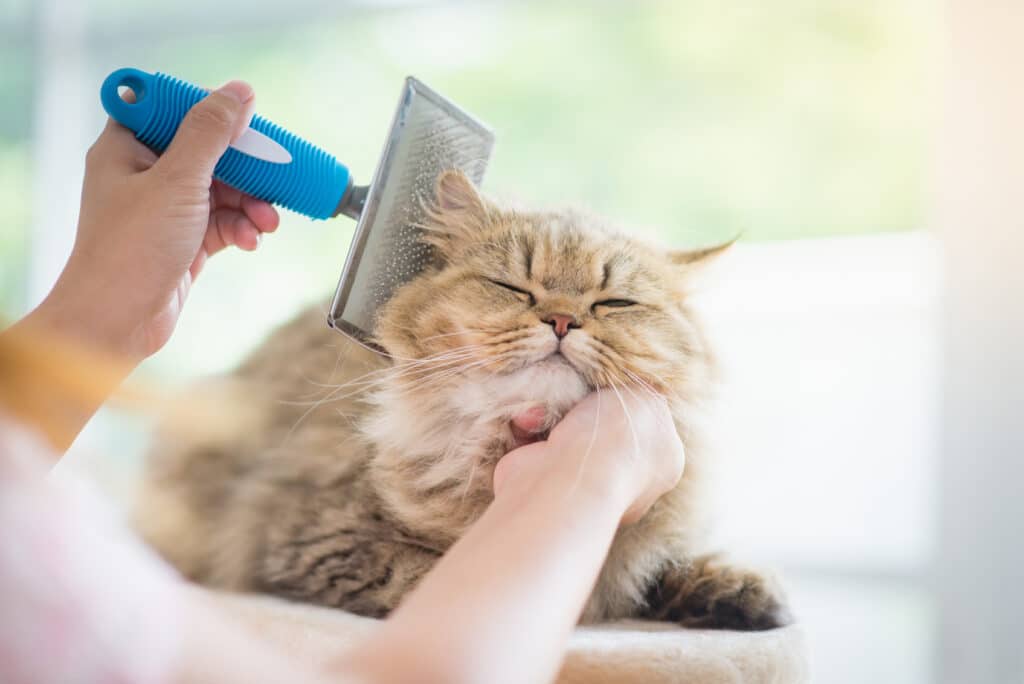
Oftentimes when a cat is approaching the end of its life, it can become restless and irritated due to the discomfort it is experiencing. Something that is comforting to them is to be provided with a clean environment to rest in. This could look like either cleaning their bed or replacing it completely. The ideal bed would be soft, clean, and comfortable for them. If you don’t want to buy them a completely new bed, you can alternatively add some fluffy towels for added cushioning and comfort. When they are done using the towels, you can make the call on whether to wash them or to throw them out.
Regardless of their state of health, your cat probably dislikes getting wet already, but it is important to bathe them frequently, especially if they have bodily fluids, such as urine, getting in their fur. When you bathe your cat, continue with your regular routine, such as applying medications and brushing. If your cat rejects this process entirely because of its discomfort, it is important to continue on. You can give them verbal affirmations and reassurances that may help calm them. This will not only help them to feel more comfortable but also help prevent any infections that could increase their discomfort.
While a major purpose of continuing or increasing the frequency and quality of your cat’s hygiene is to prevent infection, it also can be beneficial in keeping your own environment clean and taken care of as much as possible. While it may be difficult to make this a priority at this time, taking care of your space is just important as taking care of theirs. This may also help you personally feel better as you grieve.
Provide a Quiet Environment
During this time, most cats prefer to be alone rather than surrounded by a large number of people or any other animals. They feel extremely vulnerable and want to be protective of themselves from any elements they can’t control. You can help your cat feel more comfortable in this regard by setting aside an area or room in your house that is reserved for your cat and their items such as their bed, food and water, and any other items they use frequently. It is important that this space is quiet and not in the main living area where the majority of noise and traffic come and go through.
It is important to note that while they are in their own space, that does not mean that you leave them completely alone—check up on them frequently. Along with making sure this space is quiet and private, make sure you can carefully and closely control the temperature of that space. Similar to humans, when a cat is sick, its body temperature is either too hot or too cold. In the cat’s individual case, make sure you can either keep the room warm or cool enough that will be comfortable for them.
A standard temperature to start at is 68°F. If you feel that isn’t warm enough but don’t want to increase your electric bill by increasing the heat of your entire home, you can use a space heater to warm the room the cat is in to the temperature that is most comfortable for them. Make sure the heater is not placed directly next to them but is close enough where the heat can reach them
Allow Ease of Access to Basic Resources
Allowing your cat to have easy access to their basic resources is one of the most important things you can do for them during this time. These resources can include food, water, a comfortable place for them to rest, as well as fresh litter. As far as where to place these resources, the most ideal place would be close to where the cat is resting. This is helpful to them so they don’t have to move a significant distance and around obstacles to gain access to those resources, especially when they are in a lot of pain.
When preparing and setting up the area your cat will be resting in, make sure the area is free of other pets. A natural instinct of cats is to have to compete for their resources. When they are sick and not able to function at full capacity, they are not able nor motivated to either compete for those resources or even make them a priority.
While eliminating any competition from the room won’t ensure they will take advantage of those resources, it will definitely increase the chances of them feeling more comfortable and capable of doing so. If there were to be any inkling of competition preventing them from accessing those resources, their motivation would disappear, lessening the chance they will get the resources they need to be as comfortable as possible.
Make Physical Affection a Priority
Because cats cannot communicate with us through words, physical affection from us to them can significantly help them feel comforted. Unless they are severely ill and have become immobile, take the initiative to make physical affection with them a priority, because it can help them feel more secure and cared for than being left constantly left alone.
Physical affection with cats is not much different than how you would express it with a human. It is obvious you will want to be gentle in general, but especially if there are any areas on their body that are particularly sensitive or injured. As far as ways you can express physical affection, you can sit or lay next to them, hold them gently on your lap, pet and stroke them, as well as give them words of affirmation. Even though they cannot understand what you are saying, they can tell when you are being tender and affectionate with your words, rather than indifferent or negative.
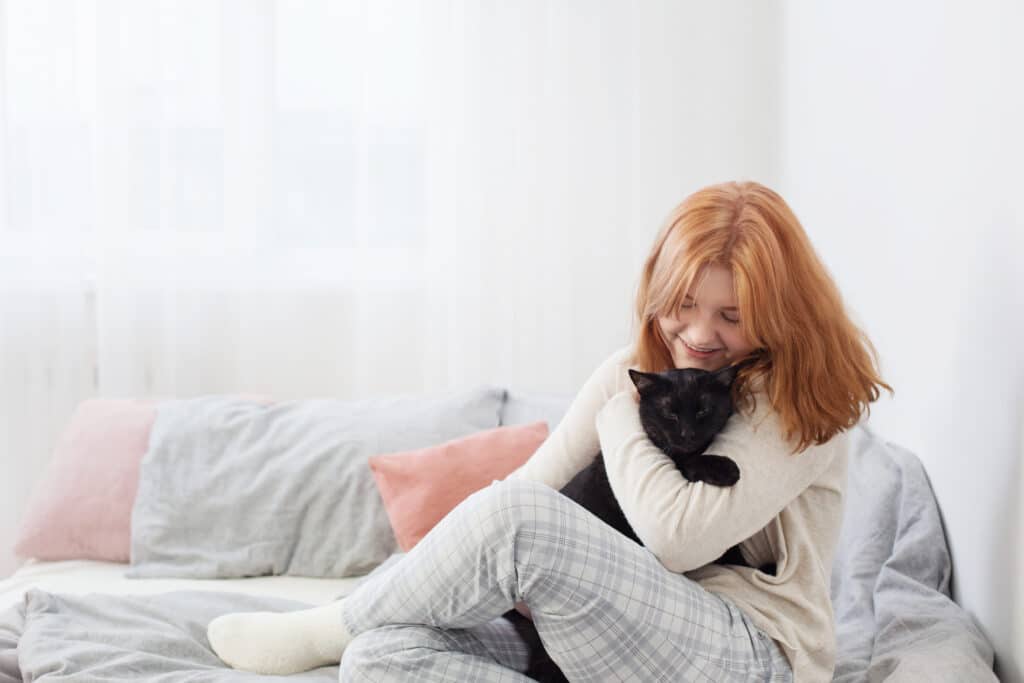
Coping with the Loss
An important aspect of taking care of your cat as they pass on that is often neglected is to take care of yourself while you are going through this difficult process. This will not only help you personally but also increase your capacity to care for your cat to the best of your ability.
First, you should know that a healthy way to cope with the loss is to understand when it is time to let them pass on. Sometimes we want to hold to them for as long as possible, but there is also a point that if you allow them to continue on any longer, you are prolonging their pain and postponing their release from pain and suffering.
Second, you need to have an understanding of what grief is and how you personally grieve. Everyone is different, but being aware of the intense feelings you are experiencing and why, can be a big help in helping you move forward in the grieving process rather than staying stagnant in the grief.
If you allow yourself to stay sad and wallow in the loss, this can create some emotional health issues that are not healthy and can prevent you from moving on with life. If you get to a serious point where you feel the grief has affected your mental health in a serious and significant way, contact medical professionals for help.
The final point that could be helpful with coping with the loss is to gather symbols of remembrance. Some of the ways you can do this are to have a memorial, save fur clippings, plant a tree or flowers, or create a photo book. There are also various websites where you can create custom mementos such as jewelry and garden stones.
The way you choose to keep the memories of your cat is up to you and is meant to be significant and personal to you. While there are numerous options of how to do so, choose the one that is most meaningful to you and create a memento that will be comforting to you to remember your cat.

